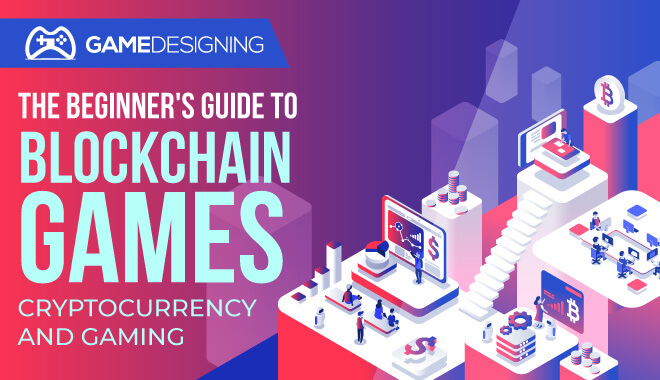
Disclaimer: Cryptocurrency speculation carries risk and any financial information in this article should not be taken as financial advice.
Back in 2017, people turned their heads at the release of a game. No, I am not talking about the release of a big title like The Legend of Zelda: Breath of the Wild, Super Mario Odyssey, or Divinity: Original Sin II.
What if I told you the release of a game involving kittens made waves. Wouldn’t believe me? I wouldn’t blame you.
However, it’s true. The 2017 release of a game called CryptoKitties, developed by Axion Zen, introduced unhackable assets. Your goal in the game is to breed, purchase, and sell virtual cats.
The platform on which CryptoKitties operated, the blockchain-based Ethereum, was actually slowed down because of the popularity of the game.
On top of that, a kitten was sold for well over $100,000.
Okay, okay, what does all of this mean? Who cares about some virtual kitten going for a lot of money! You should care because blockchain gaming could very well be a glimpse into the future of gaming itself.
History
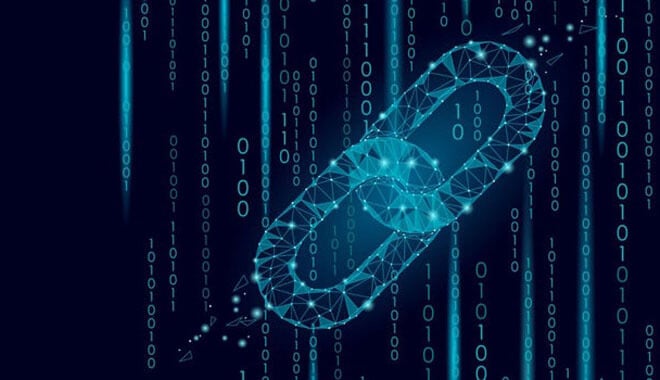
With blockchain becoming increasingly prevalent, especially through the advent of Bitcoin, blockchain gaming can easily become a phenomenon itself.
Before there were blockchain games, there was blockchain itself. Cryptography is the name of the game here, folks. The concept is a rather simple one.
Imagine blocks representing different aspects of a data transaction all tied up together securely. Cryptography keeps everything in a nice, secure ‘chain’. How does this affect gaming? In short, it will fundamentally change the business model that affects gaming.
Gaming itself would be changed, with it favoring the players and player freedom.
Blockchain games are distributed via the open-source program called Ethereum. Ethereum is perhaps only second when it comes to fame in blockchain; Bitcoin itself eclipses it. Ethereum is the backbone for current and future blockchain titles.
Using Blockchain in Gaming and Hash
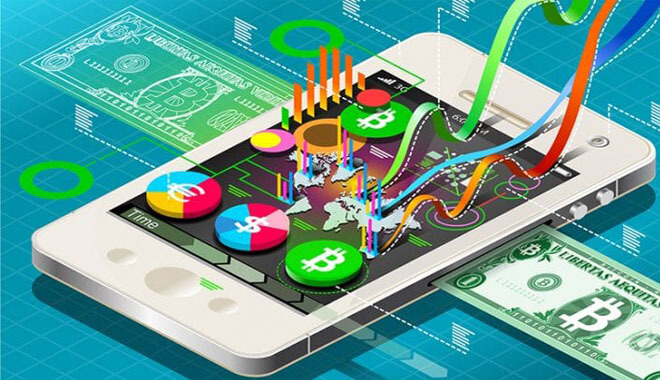
This is potentially a new and exciting time in gaming. What does this mean for how the gaming landscape can and will change? Things in gaming can benefit greatly from the blockchain experience.
Since blockchain emphasizes decentralization and freedom, perhaps us gamers can truly harness the capabilities of some of our favorite games. So far, gamers that have taken part in this phenomenon have taken place in some truly uniting experiences within games.
Are there going to be times where it resembles Rust, where the players go haywire and just kill everyone they see on sight? Sure, that seems to be an unfortunate staple in multiplayer gameplay.
However, the setup of these blockchain games seems to be very promising. The communities are more tied together than perhaps a game like Rust or Fortnite.
Specifically, the approaches in blockchain gaming are mainly in transactions of assets in the game. No, I’m not speaking of microtransactions to get players to fork over money to gain 50 levels unfairly.
The transactions in blockchain gaming are more akin to charging an entrance fee to fellow players to receive admittance to your personally built environment. That is exactly what happened in Ubisoft’s Hash.
Originally billed as a mash-up of Minecraft and No Man’s Sky, Hash was Ubisoft’s first foray into blockchain gaming.
Everything seems normal and routine: you parachute down to a randomly generated island and start crafting, etc. However, where Hash diverts from this familiar game mechanic is that the player is tasked with creating challenges on the island; specifically challenged for other players to complete.
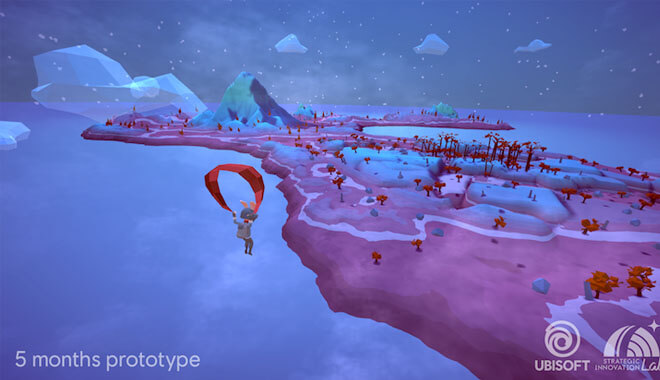
When your island goes public, you are able to share it with the others in Hash’s community. Since it’s on the blockchain, the game is decentralized and effectively belongs to the very players exploring and crafting in its environment.
The game is essentially owned by the players, not the company. Could you imagine this for something like Call of Duty or Fortnite? Each player becomes somewhat of a developer of the ‘chain’, without the need for a dedicated server for multiplayer play.
As I said before, you can charge a fee, which in turn can turn into real-world currency through a cryptocurrency. Likewise, the players visiting your island can receive cryptocurrency for completing the challenges you set forth.
Basically, you can make money off of your creation in the game. Where do I sign up? This is an amazing concept that I’m glad a huge force in gaming like Ubisoft is embracing.
The decentralization of the game and digital assets allows players unbridled freedom in which creativity is rewarded and the only limit is truly your imagination.
Potential Issues

Okay, so as rosy and cool as this idea seems, is it catching on? How does the community react? Well, the crypto community is a very fickle bunch.
The user base is very particular and easily divided over many things, so perhaps where gamers who are fans of RPGs would all flock expectedly to the new Elder Scrolls Game, the crypto community would be divided over the class system, causing a rift and inequal player base.
These are savvy and knowledgeable users, so it’s difficult to find common ground sometimes.
Another problem, perhaps a more glaring one in the industry, is the scalability potential for blockchain. Can it sustain itself? That’s a question often posited by both users and game developers.
As attractive as the decentralized approach to gaming and gaming assets is, it puts blockchain at an automatic disadvantage compared to other established systems and games. How can it hope to survive a huge uptick in users and developers?
Apparently slow speeds are a common enough issue in the community to raise some eyebrows.
Fortunately, we are still pretty early on in the blockchain evolution, so I believe that these are problems that can potentially be squashed, as opposed to having an Achilles Heel issue that will prevent it from moving forward into the industry in a big way.
Is Blockchain Living Up to its Potential?

Well, is it? This is a big step in a brand new, exciting direction for games, and I am definitely excited to see what’s in store for both decentralization and games.
However, as of right now, blockchain isn’t exactly ‘all there’ yet. But that’s okay, and to be expected in such a new, staggeringly different form of a business model than the gaming world is used to.
Due to the issues above, namely scalability and some underwhelming projects, blockchain hasn’t ‘popped’ yet.
The developers of Fortnite, unfortunately, don’t allow blockchain-like exchanges between players. Since you can buy items in-game, you can also sell them in the real world. However, Epic bans all accounts that attempt to sell the items in the game to other people.
Rare items that could be worth a pretty penny to both the seller and buyer are prevented from doing so, cutting off a large swath of customers who could be engaging in some efficient market economy transactions.
We have seen transactions outside of games like World of Warcraft and other MMORPGs where people will sell their high-level characters to other people outside of the game. It sure would be easier to do so all within the game.
Blockchain adds more easy ways of interactions and transactions between players. These interactions would bypass economic control and artificial scarcities put in place by developers and give power back to the players.
The important thing is the potential for blockchain is all there. The involvement of industry giants like Ubisoft is a great sign of things to come. While there may be hurdles, if blockchain has caught the attention of heavy hitters, there has to be some potential there.
Notable Titles
I have already described the benefits of Ubisoft’s Hash and the landmark CryptoKitties, but what other games are available using the blockchain model?
Age of Rust
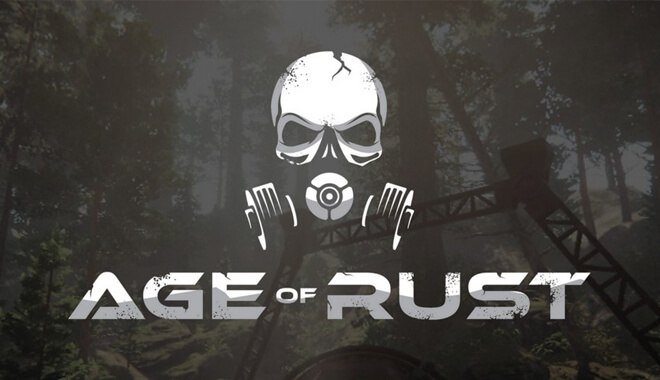
This sci-fi adventure puts the player in the role of an explorer. You make your way through a variety of environments, namely space stations and caverns. While doing this, you can earn cryptocurrency.
This game is stunning. It totally looks like an early build of the next entry in the Halo franchise. So far, it seems to have elements of Deus Ex, great puzzle-solving gameplay, and more. Your ultimate reward is getting crypto for solving puzzles and finding the hidden treasure.
Crypto Space Commander
CSC’s motto is ‘mine, trade, battle, craft’, and you’ll do just that. Set in space, CSC evokes imagery of No Man’s Sky in the blockchain universe.
Hopefully, it has a better reception! You’ll venture to different solar systems, look for resources, and even battle pirates. I love the ambition of projects like these. It promises true freedom, and it reminds me of gaming greats like Wing Commander and EVE Online.
Reality Clash
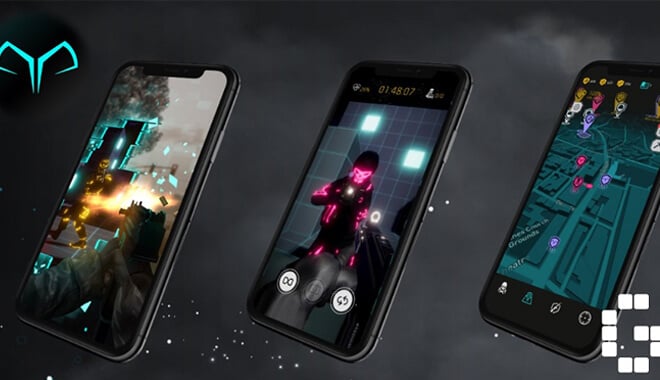
Billing itself as the ‘world’s first AR combat game’, Reality Clash puts you in that sweet spot of augmented reality to battle friends and computer AI.
You’ll actually defend and navigate around your location, defending local points as if they were something out of Hardcore Search and Destroy in Call of Duty. The concept is awesome, and I could see this becoming a craze.
Unfortunately, the 3 countries it’s not available in right now are the United States, China, and South Korea. However, they’re coming soon, and the rest of the world has immediate access to taking the battle to friends in your hometown!
pixEOS
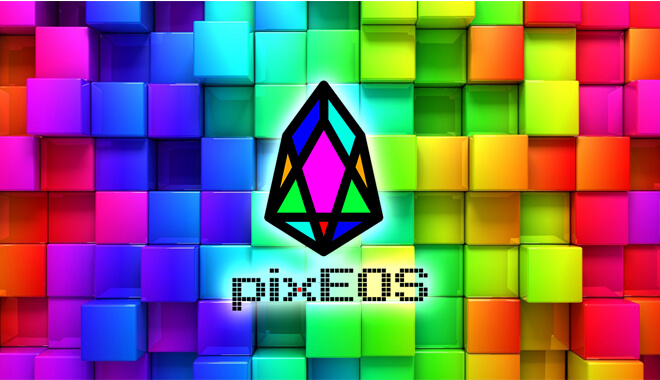
‘Where games and art collide’ is this cool little project’s motto. This is truly a unique title in that it displays artwork from users and shares them with the fellow art community.
This is a great step forward not only for gaming but for art and art criticism. This is one of those titles that will benefit someone in multiple ways. Maybe someone was self-conscious about their work, but this game helped them finally show it off.
It’s a growth opportunity as well as a gamer-centric decentralized experience. They will often hold contests and artist competitions within the community for an added layer of immersion.
Evolution Land
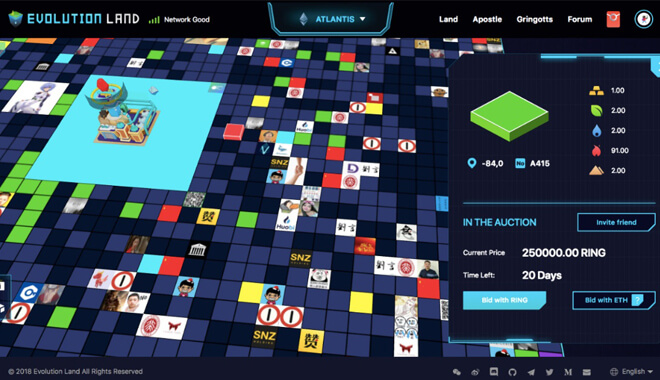
Spanning 26 different continents, Evolution land puts players in the blockchain model of gaming by dealing with cross-chain transactions.
Players will mine the land, look for resources, set tax rates on the land, buy, and sell the land, and more. It mashes up different types of gameplay like auctions, micromanagement, combat, and much more.
The different continents will eventually evolve into different nations, and it will inevitably lead to conflict between the countries. Trade wars and everything that comes with conflict will be available.
Blankos Block Party
This one just seems like pure fun. Presented in a cartoonish style, players must collect the avatars or Blankos. They’re all very rare, giving players an incentive to collect them all.
Players then use their Blankos in the game to level them up, in turn making them even more rare and valuable. There’s even a skin based on the Golden Ticket in which only one person in the world will possess. It’s a lot of platforming goodness that we all know and love.
Conclusion
Although the blockchain gaming phenomenon has some potential hiccups along the horizon, it seems that it could potentially develop into something great.
With an open and free marketplace amongst gamers, cryptocurrency flowing, and the ultimate decentralization of game worlds, blockchain could be the next big gaming craze.
Keep in mind that Ubisoft, and possibly other gaming greats, could very well harness the decentralization model of blockchain to make it more normalized.
I think that the future, although perhaps containing some hurdles and stumbles along the way, is overall pretty bright for blockchain gaming. So long and sayonara, microtransactions!
Image Source: (Devteam, Finder, Arabianbusiness, Forbes, Medium, Pixeos, Stateofthedapps, Gamerbraves)
